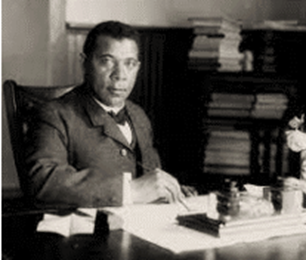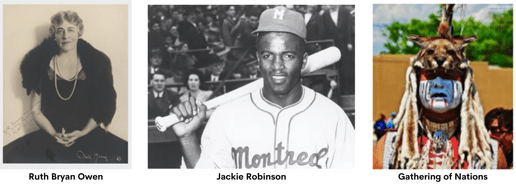ARAB AMERICAN HERITAGE MONTH
April is Arab America Heritage Month, marking a time to reflect on the contributions Arab Americans have made to the U.S., and the diverse group of people who make up the nation’s Middle Eastern population. The month of April is a special opportunity to enhance understanding of the nuanced and diverse aspects of Arab American heritage that is often forgotten or intentionally avoided by the media.
U.S. Air Force Colonel James Jabara
James Jabara, son of Lebanese immigrants, was the first American jet ace in history. During World War II, Jabara flew two tours of combat duty in Europe. He took down his first jet on April 3, 1951, followed by more on April 10, April 12, April 22, and May 20. Those qualified him as a “jet ace,” meaning he took down five or more jets as a fighter pilot.
For his heroism during World War II, Jabara was awarded the Distinguished Flying Cross with one Oak Leaf Cluster and the Air Medal with 18 Oak Leaf Clusters. While in Korea, he received the Distinguished Service Cross with one Oak Leaf Cluster and an Oak leaf Cluster to the Distinguished Flying Cross.
First Muslim Congresswoman Rashida Tlaib
On election night 2018, Democrat Rashida Tlaib won a historic race in Michigan’s 13th Congressional District, making her the first female Muslim to be elected to the House of Representatives. She also earns the distinction of becoming the first Palestinian-American woman in Congress.
Pediatrician and Professor Dr. Mona Hanna-Attisha
By now, you’ve probably heard of the Flint Water Crisis. Dr. Mona Hanna-Attisha, a pediatrician at Hurley Medical Center and professor at Michigan State University, skyrocketed to star status when she blew the whistle on the environmental disaster. The Flint Water Crisis exposed its residents to dangerous levels of lead, and still hasn’t completely resolved. Today, Hanna-Attisha advocates for children, immigrants, and women in STEM.

Political Activist Linda Sarsour
Linda Sarsour has earned accolades as one of the most prominent progressive activists in the country. She also served as the former executive director of the Arab American Association of New York, and co-chair of the Women’s March. She advocates for rights of all people: immigrants, Muslims, women, black victims of police violence, Standing Rock Native Americans, and many more.
Autism Awareness Month

This day was established to raise awareness about the developmental disorder that affects an individual’s normal development of social and communication skills.
April 2nd
In 1931,17-year-old Jackie Mitchell, the second woman to play baseball in the all-male minor leagues, pitches an exhibition game against the N.Y. Yankees and strikes out both Babe Ruth and Lou Gehrig. The next day, the Baseball Commissioner voided her contract, claiming baseball was too strenuous for women. The ban was not overturned until 1992
World Autism Awareness Day This day seeks to raise awareness and improve the acceptance of people with autism in society with a goal of spreading kindness and uplifting those with autism by reading, watching, or listening to content created by them.
April 5th
Happy Birthday, BOOKER T. WASHINGTON! (1856- 1915)

Booker Taliaferro Washington was born into slavery on April 5, 1856 in a hut in Franklin County VA His mother was a cook for the planation’s owner. At the close of the Civil War, the enslaved people owned by James and Elizabeth Burroughs – including 9-year-old Booker and his siblings and mother were freed. Booker and his family moved to Mallden West VA and his mother married Washington Ferguson, a free Black man. Booker worked hard at school, which he could only attend after working from 4-9 a.m. each morning in a local salt works. He also had a second job in a coal mine where he learned about Hamton Institute, a school for formerly enslaved people. In 1872 Booker walked the 500 miles to Hampton where he excelled and was ultimately referred to be a principal at the new African American school in Tuskegee, Alabama. Booker T. Washington rose to become a leading intellectual of the 19th century. He was a founder of what is now Tuskegee
University in 1881 and the National Negro Business League two decades later. Washington advised Presidents Theodore Roosevelt and William Howard Taft. At one point, President Roosevelt invited him to have dinner at the White House and the back lash from white southerners was so fierce, Roosevelt’s staff tried to suggest that the dinner never happened. He had conflicts with Black leaders like W. E. B. Du Bois over his views that the way forward for African Americans was to remain separate from whites proved that whites granted their Black Countrymen and women access to economic progress, education, and justice under the court. This conflict caused a stir, but today, he is remembered as the most influential speaker of his time.
April 13th
1933 Ruth Bryan Owen becomes the first American woman to head a diplomatic legation representing the U.S. as a foreign minister to Denmark by President Franklin D. Roosevelt. On July 11, 1936, married Captain Borge Rohde of the Danish Royal Guards. Because her marriage meant that she was a citizen of both Denmark and the United States, she had to resign her diplomatic position.
April 14th
Day of Silence – This an annual event designed to bring attention to the bullying, harassment, and name-calling LGBT students often experience in school. It is a national student-led demonstration where LGBTQ students and allies all around the country—and the world—take a vow of silence to protest the harmful effects of harassment and discrimination of LGBTQ+ people in schools. Started in the mid 90’s by two college students, the Day of Silence has expanded to reach hundreds of thousands of students each year. Every April, students go through the school day without speaking, ending the day with Breaking the Silence rallies and events to share their experiences during the protest and bring attention to ways their schools and communities can become more inclusive.
https://www.glsen.org/dayofsilencehttps://www.aclu.org/news/lgbtq-rights/four-things-you-should-know-about-student-rights-and-day-silence
April 15th
Jackie Robinson Day (American)A traditional event which occurs annually in American Major League Baseball, commemorating and honoring the day Jackie Robinson made his major league debut. April 15 was Opening Day in 1947, Robinson’s first season in the Major Leagues. Initiated for the first time on April 15, 2004, Jackie Robinson Day is celebrated each year on that day.

April 17th
DC Emancipation Day (United States of America)On this day in 1862, President Abraham Lincoln signed the Compensated Emancipation Act freeing more than 3000 slaves in the District of Columbia.
A brief history of The District of Columbia Compensated Emancipation Act via senate.gov:
On a visit to Washington, D.C., in 1836, the sight of a slave auction held in the shadow of the Capitol convinced future senator Henry Wilson of Massachusetts to “give all that I had to the cause of emancipation.”
Elected to a Senate seat in 1855, Wilson became a leading voice for the abolition of slavery during the Civil War. Throughout the war years, the Senate operated, according to Senator John Sherman of Ohio, like “a laborious committee where bills are drawn as well as discussed.” In addition to fulfilling legislative responsibilities and accomplishments such as funding the war effort and providing for Union troops during this period, a group of elected officials known as the Radical Republicans demanded the abolition of slavery. Many senators believed that only the president had the power to emancipate enslaved people in the states, but as Senator Sherman explained, “Little doubt was felt as to the power of Congress to abolish slavery in the District.” On April 3, 1862, the Senate passed the District of Columbia Compensated Emancipation Act, originally sponsored by Wilson. Harper’s Weekly reported that the “bill passed by a vote of twenty-nine yeas to fourteen nays. The announcement of the result was received with applause from the galleries.” Two days later, Senator Lafayette Foster of Connecticut proudly declared, “You may strike off the bonds of every slave in the District of Columbia today.”
President Lincoln signed the bill into law on April 16, freeing enslaved people in the district and compensating owners up to $300 for each freeperson. The Hartford Daily Courant celebrated that, “Not a slave exists in the District of Columbia … Their shackles have fallen, never to be restored.” In the months following the enactment of the law, commissioners approved more than 930 petitions, granting freedom to 2,989 former enslaved people. “DC Emancipation Day” has been celebrated in the District each year since 1862. Just five months later, in September 1862, using his powers as Commander in Chief, Lincoln announced his intention to emancipate enslaved people located in states “in rebellion.” On January 1, 1863, the Emancipation Proclamation granted freedom to enslaved people residing in Confederate states not occupied by Union forces. The Thirteenth Amendment, ratified by the states on December 6, 1865, abolished slavery “within the United States, or any place subject to their jurisdiction.”
April 19th
1977: Fifteen women in the House of Representatives form the bipartisan Congressional Caucus for Women’s Issues to publicize legislative initiatives that were important to women. The caucus became a forum for exchanging ideas and legislative strategy. The Caucus was originally known as the Congresswomen’s Caucus and its founding co-chairs were Representatives Elizabeth Holtzman (N.Y. Dem.) and Margaret Heckler (Mass- Rep). In the first months, Congresswomen met to discuss Social Security and private pension reform as well as the importance of childcare and job training in moving women off welfare and advocated for government contracts for women-owned businesses.
April 22nd
In 1981, the Congresswomen changed the organization’s name to the Congressional Caucus for Women’s Issues. Twenty-four newly elected Congresswomen arrived on Capitol Hill in 1993, nearly doubling the number of women in the Caucus in what became the “Year of the Woman.” In 1995, the House of Representatives voted to eliminate funding for offices and staff of caucus organizations on Capitol Hill so the Congresswomen reorganized themselves into a Members’ organization by the same name. Bipartisanship is the key to the Caucus’ strength and success. The legacy of its first 40 years is one of a bipartisan group of Congresswomen committed to improving the lives of women and families, and willing to put their partisan differences aside to do it.
Since the establishment of the Congressional Caucus for Women’s Issues, the number of women in the House of Representatives has grown from 15 in 1977 to 106 (including four Delegates) today. The earliest accomplishments of the Women’s Caucus include:
- The Pregnancy Discrimination Act (1978)
- The Retirement Equity Act (1984)
- The Civil Rights Restoration Act (1987)
- The Women’s Business Ownership Act (1988)
- The Breast and Cervical Cancer Mortality Prevention Act (1990)
- The Child Support Enforcement Act (1992)
- The Mammography Quality Standards Act (1992)
- The Family and Medical Leave Act (1993)
- The Violence Against Women Act (1994)
- The Commission on the Advancement of Women and Minorities in Science, Engineering, and Technology Development Act (1998)
In recent years, the Women’s Caucus has introduced legislation signed into law to address the needs of women serving in the military and women veterans, combat the domestic and international trafficking of women and girls, end sexual harassment and violence, increase the number of women and girls in STEM, and address women’s preventative health.
Caucus members have championed women’s issues around the globe and represented the Congress at UN world conferences on women, population, and development, working to bring international attention to the plight of women. The Women’s Caucus also has served as an inspiration and a model worldwide for women parliamentarians – whose image of American democracy is shaped in part by the example of women from different political parties working together to improve the lives of women and families.
Earth Day (International):
Celebrates the planet we live on, observed internationally in more than 92 countries.
April 22nd – 30th
Passover or Pesach (Judaism)
It commemorates the story of the Exodus, in which the ancient Israelites were freed from slavery in Egypt. Passover begins on the 15th day of the month of Nisan in the Jewish calendar, which is in spring in the Northern Hemisphere and is celebrated for seven or eight days. It is one of the most widely observed Jewish holidays. On the first two days of Passover, a traditional Seder is eaten, and the story of deliverance is shared. Pesach is one of the most commonly observed Jewish holidays, even by otherwise non-observant Jews. Probably the most significant observance related to Pesach involves avoiding chametz (leaven) throughout the holiday. This commemorates the fact that the Jews leaving Egypt were in a hurry and did not have time to let their bread rise. It is also a symbolic way of removing the “puffiness” (arrogance, pride) from our souls.
April 27th – 29th
Gathering of Nations (Native American):More than 500 Native tribes meet and celebrate various traditions and cultures.
April 30th
El Día de los Niños (Mexico)This special day, originating in Mexico, celebrates the importance of children. This Latin American tradition is now recognized in the U.S., often as a day to celebrate children, families, and literacy. While Children’s Day is not an official holiday in Mexico (school is in session), it’s generally a day filled with festivities designed to help children feel special.
Other notable, but certainly not forgotten Arab Americans:
- Doug Flutie – Football Star
- Candy Lightner – Mothers Against Drunk Driving Founder
- Actress Salma Hayek
- Today Show Host, Hoda Kotb
- D Dipasupil – Getty Images’ Photographer
- Comedian Maysoon Zayid
- Singer, Dancer and Choreographer Paula Abdul
- Dr. Farouk El-Baz – Space Photographer Pioneer
- Teacher and Astronaut Christa McAuliffe
- Model Gigi Hadid
Sources:



